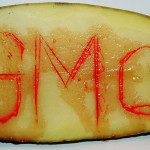Pesticides are intentionally toxic substances. Some chemicals commonly used on lawns and gardens have been associated with birth defects, mutations, adverse reproductive effects, and cancer in laboratory animals. EPA permits over 200 different pesticides to be used for lawn care, and these are often mixed together and sold as chemical combinations. Approximately 35 pesticides are […]
Genetically Modified Golden Rice Falls Short On Lifesaving Promises
Heralded on the cover of Time magazine in 2000 as a genetically modified (GMO) crop with the potential to save millions of lives in the Third World, Golden Rice is still years away from field introduction and even then, may fall short of lofty health benefits still cited regularly by GMO advocates, suggests a new […]
Indoor Plants Can Reduce Formaldehyde Levels
Researchers are studying the ability of plants to reduce formaldehyde levels in the air. A study led by Kwang Jin Kim of Korea’s National Horticultural Research Institute compared the absorption rate of two types of houseplants. The results of the experiment on Weeping Fig (Ficus benjamina) and Fatsia japonica, an evergreen shrub, were published in the […]
FDA concludes GMO Arctic Apples and Innate Potatoes are safe for consumption
The U.S. Food and Drug Administration completed its evaluation for two varieties of apples genetically engineered by Okanagan Specialty Fruits, Inc., and for six varieties of potatoes genetically engineered by J. R. Simplot Company and concluded that these foods are as safe and nutritious as their conventional counterparts. Okanagan’s Granny Smith and Golden Delicious varieties […]
X-rays reveal uptake of nanoparticles by soybean crops
Metals contained in nanoparticles can enter into the food chain. Scientists have, for the first time, traced the nanoparticles taken up from the soil by crop plants and analysed the chemical states of their metallic elements. Zinc was shown to dissolve and accumulate throughout the plants, whereas the element cerium did not dissolve into plant […]
Researchers Create A Purple Genetically Engineered Lime
Scientists are developing genetically engineered limes containing anthocyanin, which are beneficial bioflavonoids that have numerous roles in human well-being, including treating obesity and diabetes. University of Florida horticulture scientist Manjul Dutt is hoping to turn your next margarita on its head by making it a lovely lavender instead of passé pale green. Dutt and Jude […]
Cannabidiol (CBD) Offers A Host Of Medicinal Uses
Cannabidiol (CBD), an active substance in the cannabis plant, offers a host of medicinal uses. There are at least 85 active cannabinoids present in the cannabis plant. CBD doesn’t have psychoactive effects, meaning you won’t get high by ingesting it. It is a major phytocannabinoid, accounting for up to 40% of the plant’s extract. CBD is considered […]
Subtle Mutations | Fukushima
Subtle changes are happening to our genome with increasing genetic mutations, and the danger from Fukuhima to Japan and the world has not passed, it has just begun. For millennials, life on earth has been evolving through natural forces. It’s not that Fukushima has started this change, it’s just the contamination has pushed our DNA […]
Radioactive Cesium From Fukushima Is Still Being Detected In Florida Citrus And Other Plants
Radioactive cesium from the 2011 Fukushima disaster is still being detected in citrus and other plants as far away as Florida, according to a report sent to the U.S. Nuclear Regulatory Commission (NRC). In March 2011, multiple nuclear meltdowns took place at the Fukushima Daiichi plant in Japan. The explosions ejected massive amounts of radioactive […]
Genetically engineered crops, glyphosate and the deterioration of health in the United States of America
Is rising glyphosate use responsible for increases in modern diseases? Claire Robinson looks at the latest study to raise the question Is the rise in glyphosate use since the advent of GM crops responsible for the rapid deterioration of health in the US in the last 20 years? A new study by former US Navy […]









